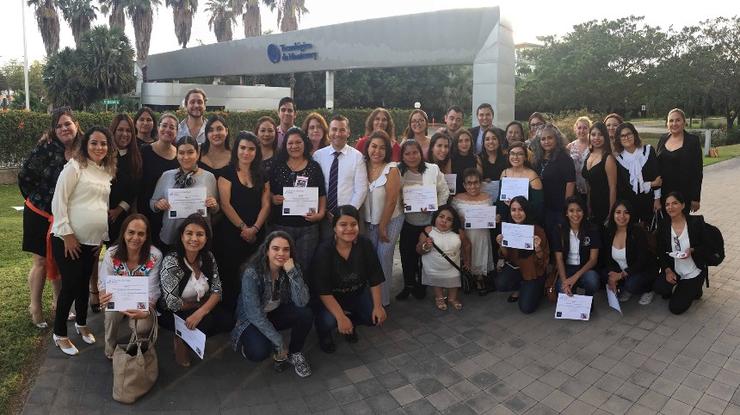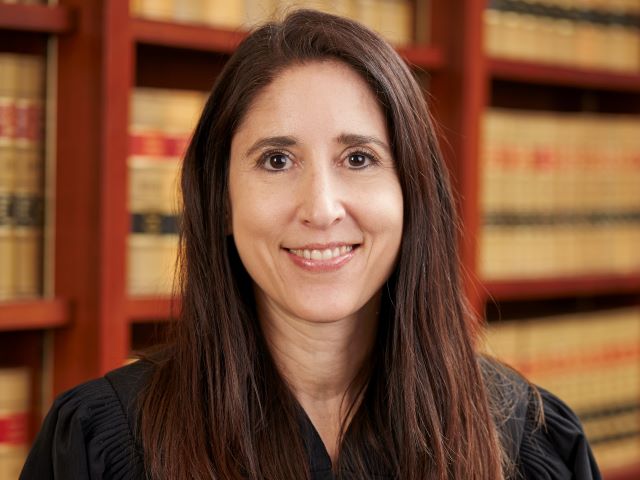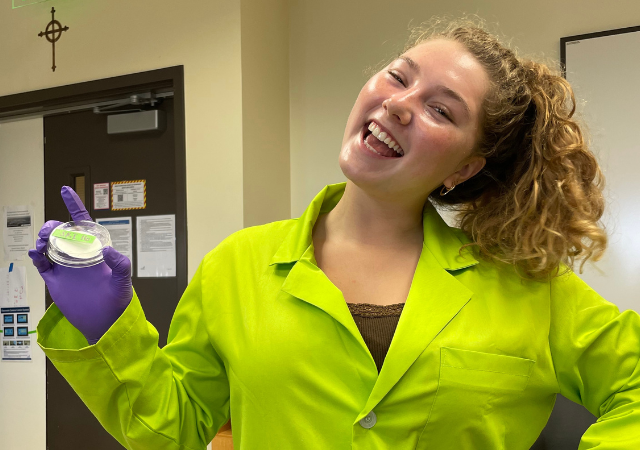Kroc School Team Trains 45 new Peacebuilders in Culiacan, Sinaloa

This spring the Kroc School helped to train 45 new peacebuilders in Culiacán, Sinaloa, epicenter of the violent conflict raging in Mexico since 2007. The fifth version of our certificate program in peacebuilding emphasized the active accompaniment of victims of violence and included a wide range of activists, academics, businesspeople, lawyers, clinicians, and government officials. Led by Professor of Practice and Trans-Border Institute Director Ev Meade, six Kroc School graduate students traveled back and forth to Sinaloa throughout the spring semester to participate in the program, and conduct applied research in collaboration with our local partners.
What do we teach?
This version of our certificate program consists of five modules: human nature and human rights, citizenship and social movements, history and memory, conflict resolution, and social innovation. In each module, we try to bring big-picture theoretical models, data, and wisdom from outside to bear on the specific context of Culiacán. But, far from parachuting in with pre-fabricated solutions to local problems, the course material is meant to prompt local peacebuilders to examine their own conflicts with fresh eyes, and to create a platform for local collaboration that crosses previous institutional, social, and political barriers.
Applied research – documenting the experience of violence in Sinaloa
As part of each certificate program we have undertaken, we co-design and implement a collaborative research project that mobilizes all of the participants in a common endeavor. This year, we formed the Citizens’ Commission on Memory in Culiacán, and undertook an oral history project to document the experience of violence over the last 10 years in first-person, from witnesses, victims, and their family members and advocates. (You can read more about the project design here.) The format of the interviews was unstructured oral histories, where we invited individuals to share their experiences without prompting them with a specific set of questions or cues. In total we collected more than 65 interviews, and it will take some time to process and analyze the data.
There are four immediate lessons that we can take from the data and the experience, however. First and foremost, the grief and suffering of victims and their loved ones are alive within them; they are open wounds. Whatever happens with the intensity of the violence in Mexico over the coming years, it will take a concerted focus and a long time for these wounds to heal.
Second, most victims do not report the violence they and their loved ones have suffered and when they do, they describe a long list of excuses and pretexts that the authorities have used to shift blame back to the victims: “he must have been involved in something”; “he was gay”; “she was flirty…look at how she dressed”; “he was convicted of a crime”; “he was always out at night”; etc.
Third, much of this distrust in the authorities is related to specific acts of violence that involved police, soldiers, or those in uniform. Our interviewees reported threats, extortion, kidnapping, torture, and other abuses at the hands of the authorities.
Fourth and finally, this research project documented the fact that many victims are not involved in organized crime or any other kind of illicit activity, and were attacked on a variety of other pretexts: for being a journalist, for wanting to play soccer early in the morning, for being a woman, for being a migrant, for not having a father around, for being an addict, or for being an activist. There’s much more work to be done in exploring these stories and shaping them into polished narratives for publication.
What’s next?
Planning is in high gear for the 2020 version of the Kroc School’s Certificate Program in Peacebuilding in Culiacán. The program will be a partnership between the Kroc School at USD, Construyendo Espacios para la Paz, and the Public Security Ministry of the State of Sinaloa. We hope to mobilize more than 100 volunteers to document peacebuilding success stories in Sinaloa, as part of a collaborative research project. The idea is to reconstruct, analyze, and publish the stories of local leaders and projects that have triumphed over violence and corruption, so that these stories can inspire and guide others. Stay tuned.
How can I get involved?
Check out our academic programs – Kroc students have been involved in every aspect of our work in Sinaloa over the last five years, and a variety of students from all three of our master's programs will participate in next year’s certificate program in order to fulfill their field-based requirement. For the same cost as a standard course, they will get to travel to Sinaloa six times during the spring semester, take a proven peacebuilding course in Spanish alongside local leaders in Culiacán, and participate directly in a large-scale collaborative research project.
Give to TBI – we depend upon donations to support our work, and to make our programs available to Spanish-speaking students, in particular, through scholarships and grants.
Contact:
Ev Meade
emeade@sandiego.edu
619 260-4161



